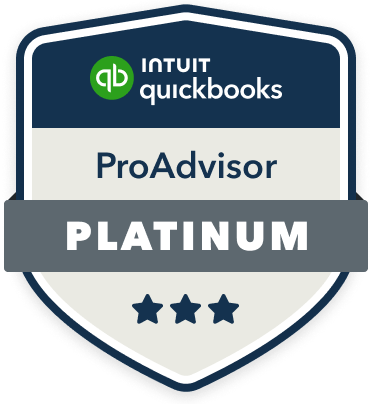Mastering Financial Management for Small Businesses: A Beginner's Guide
Discover essential financial management tips and tools tailored for small business owners in the USA with basic financial knowledge. Simplify your finances and pave the way for business success.
SYSTEMS AND SOFTWARE


Introduction
Financial management can be a daunting task for small business owners, especially if you're not a finance expert. But fear not, because in this beginner's guide, we'll break down the fundamentals of financial management into simple, easy-to-understand steps. Whether you're just starting your small business or looking to improve your financial skills, this guide is designed for you. We'll explore the key aspects of financial management, introduce you to useful tools and strategies, and set you on the path to financial success. Let's begin your journey to mastering financial management for your small business.
Why Financial Management Is Vital for Small Businesses
Conclusion:
As a small business owner, mastering financial management is not just a goal; it's a necessity for your business's success. These steps, from setting up your financial infrastructure to planning for growth, provide you with a solid roadmap. However, it's crucial to recognize that, especially in the early stages, seeking expert advice can be the key to unlocking your full potential.
Financial professionals, including accountants and financial advisors, possess specialized knowledge that can help you navigate the complexities of financial management effectively. They can ensure your financial infrastructure is sound, your budget is realistic, and your tax obligations are met. They provide invaluable insights, tailored strategies, and help you make informed decisions that can shape the future of your business.
Remember, financial management is not a one-size-fits-all endeavor, and seeking expert guidance can be fundamental to your success. It's an investment in the long-term health and prosperity of your small business. So, embrace the knowledge and experience of financial experts, and together, you can pave the way for your business's financial success.
Financial management is the lifeblood of any small business. It's not just about crunching numbers; it's the foundation of your business's success. Effective financial management allows you to:
Stay Afloat:
Proper financial management ensures you have enough cash to cover your day-to-day expenses and keep the lights on.
Plan for Growth:
It helps you allocate resources wisely and make informed decisions about expanding your business.
Prepare for the Unexpected:
With a financial safety net, you can weather economic downturns or unexpected expenses.
In essence, mastering financial management is like having a roadmap for your business's journey to success.
Setting Up Your Financial Infrastructure
Before diving into the nitty-gritty of financial management, you need a solid infrastructure in place. This includes:
Separate Business and Personal Finances: Open a business bank account to keep your business and personal finances distinct. It simplifies record-keeping and tax filing.
Choose the Right Accounting Method: Decide whether cash or accrual accounting suits your business. Cash accounting records transactions when cash changes hands, while accrual records them when they occur.
Get Proper Licenses and Permits: Ensure you have all the necessary licenses and permits to operate legally in your area. Compliance is key to avoiding financial penalties.
By establishing these basics, you're creating a strong foundation for effective financial management.
Creating a Budget That Works
Budgeting is your financial roadmap. It helps you plan your income and expenses, giving you a clear picture of your financial health. Here's how to create a budget that works:
Track Your Expenses: Begin by tracking your expenses for a month. This will help you understand where your money is going.
Set Realistic Goals: Determine your business's financial goals. Are you aiming to increase profits, reduce debt, or save for expansion?
Categorize Your Expenses: Divide your expenses into fixed (rent, utilities) and variable (office supplies, advertising) categories.
Income Forecasting: Estimate your income based on your sales projections.
Stay Flexible: A budget should be flexible. Revisit and adjust it as needed to reflect changes in your business.
A well-crafted budget is your financial compass, guiding you toward your goals.
Tracking Your Income and Expenses
Effective financial management relies on keeping meticulous records of your income and expenses. This includes:
Invoicing: Send out invoices promptly and follow up on overdue payments.
Expense Receipts: Keep receipts for every business expense. This helps during tax time and provides a clear picture of your spending.
Accounting Software: Consider using accounting software like QuickBooks or FreshBooks to streamline this process.
Regularly reviewing your income and expenses helps you spot trends, make adjustments, and ensure you're on the right financial track.
Managing Cash Flow Effectively
Cash flow is the life force of your business. Proper cash flow management involves:
Cash Flow Projections: Predicting your future cash inflows and outflows to avoid shortages.
Controlling Costs: Identifying areas where you can cut expenses without sacrificing quality.
Emergency Fund: Building an emergency fund to handle unexpected expenses or economic downturns.
Invoice Terms: Setting clear payment terms with customers to maintain a consistent cash flow.
Maintaining a healthy cash flow ensures you can meet your financial obligations and seize growth opportunities.
Dealing with Business Taxes
Taxes are a necessary part of business life. Key steps in managing your taxes include:
Understanding Tax Obligations: Familiarize yourself with federal, state, and local tax requirements.
Tax Deductions: Identify potential deductions that can reduce your tax liability.
Regular Filing: File your taxes on time to avoid penalties and interest charges.
Consider consulting with a tax professional to navigate the complexities of business taxes effectively.
Using Financial Software for Small Businesses
Financial software can be a game-changer for small business owners. Popular options like QuickBooks, FreshBooks, and Xero offer features such as:
Invoicing: Generate and send professional invoices.
Expense Tracking: Easily track and categorize expenses.
Financial Reporting: Access detailed financial reports to gain insights into your business's performance.
These tools streamline financial tasks, saving you time and reducing the chance of errors.
Working with Basic Financial Statements
Financial statements like the income statement and balance sheet provide a snapshot of your business's financial health. Understanding these documents helps you make informed decisions and impress potential investors or lenders.
Financial Ratios Made Simple
Financial ratios, like the debt-to-equity ratio or the current ratio, provide insights into your business's financial stability. They sound complex, but they're valuable tools for assessing your financial health.
Planning for Future Growth
Financial management isn't just about maintaining the status quo; it's also about planning for growth. This involves:
Investment: Identifying opportunities to invest in your business's growth.
Risk Assessment: Evaluating potential risks and having contingency plans.
Market Analysis: Understanding market trends and customer behavior.
Effective financial management is about setting your sights on a brighter future.
Getting Professional Financial Help When Needed
Don't hesitate to seek help from financial professionals when facing complex financial challenges. Accountants, financial advisors, and consultants can provide valuable expertise tailored to your specific needs.












